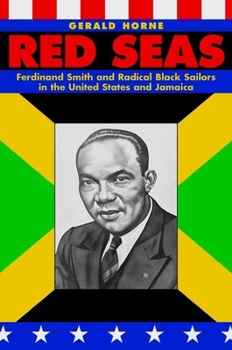Red Seas: Ferdinand Smith and Radical Black Sailors in the United States and Jamaica
Select Format
Select Condition 
Book Overview
During the heyday of the U.S. and international labor movements in the 1930s and 1940s, Ferdinand Smith, the Jamaican-born co-founder and second-in-command of the National Maritime Union (NMU), stands out as one of the most--if not the most--powerful black labor leaders in the United States. Smith's active membership in the Communist Party, however, coupled with his bold labor radicalism and shaky immigration status, brought him under continual surveillance by U.S. authorities, especially during the Red Scare in the 1950s. Smith was eventually deported to his homeland of Jamaica, where he continued his radical labor and political organizing until his death in 1961.
Gerald Horne draws on Smith's life to make insightful connections between labor radicalism and the Civil Rights Movement--demonstrating that the gains of the latter were propelled by the former and undermined by anticommunism. Moreover, Red Seas uncovers the little-known experiences of black sailors and their contribution to the struggle for labor and civil rights, the history of the Communist Party and its black members, and the significant dimensions of Jamaican labor and political radicalism.
Related Subjects
Africa African-American & Black African-American Studies Americas Asia Biographical Biographies Biographies & History Biography & History Business & Finance Business & Investing Caribbean & West Indies Communism & Socialism Economics Ethnic & National History Industries & Professions Jamaica Labor & Industrial Relations Leaders & Notable People Military Political Political Ideologies Political Science Politics & Government Politics & Social Sciences Popular Economics Social Sciences Specific Demographics Textbooks Transportation World




